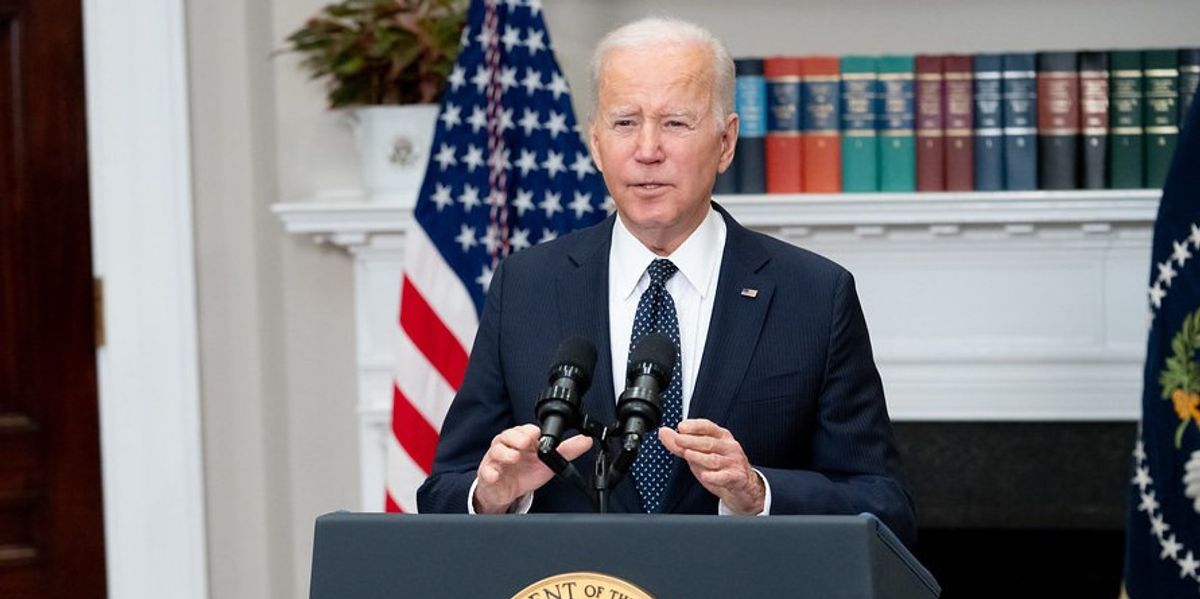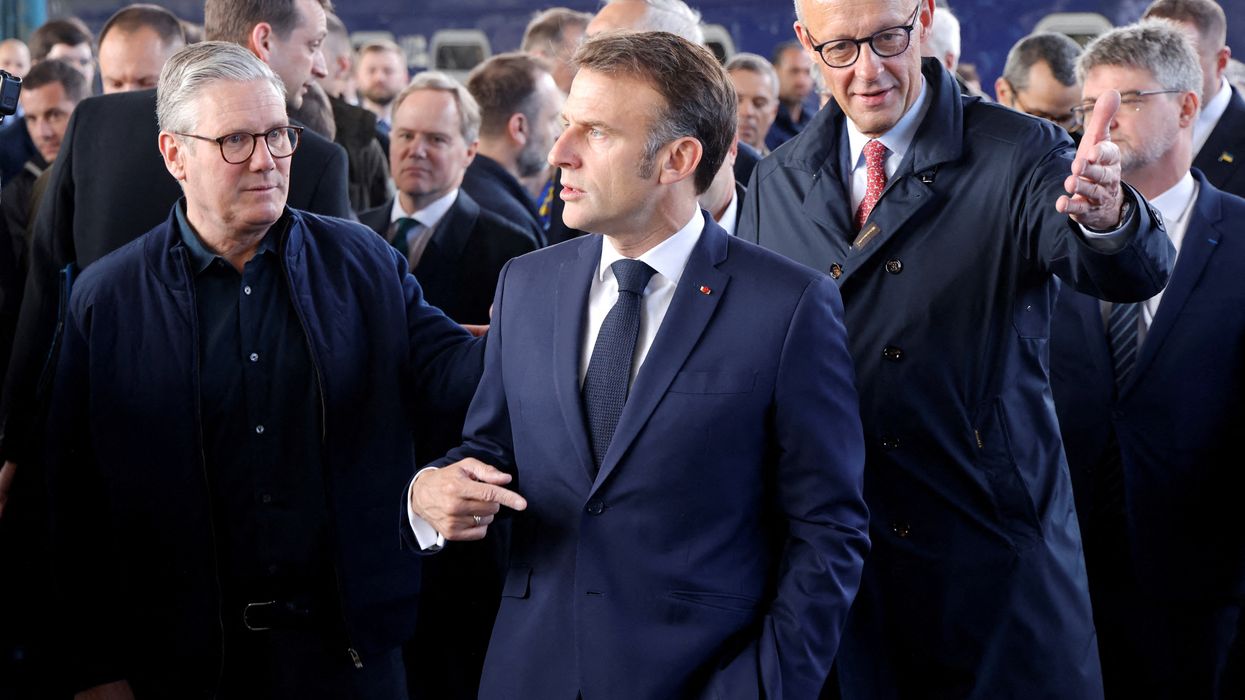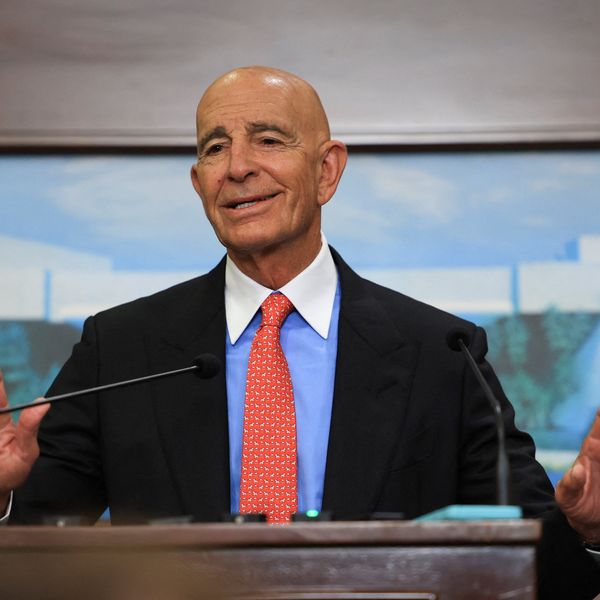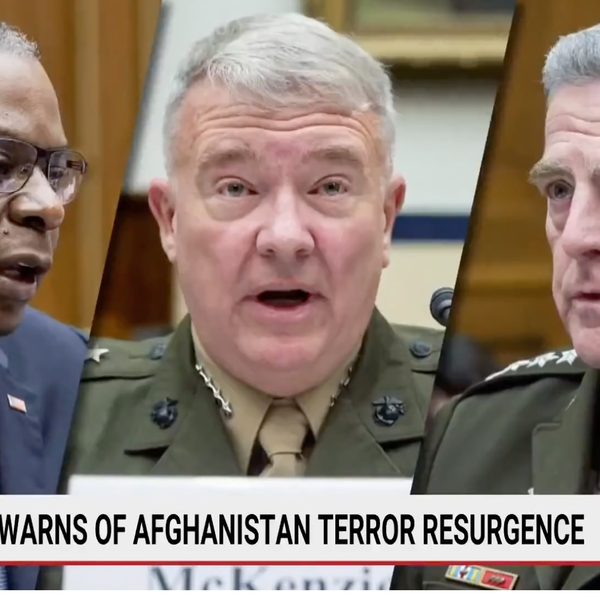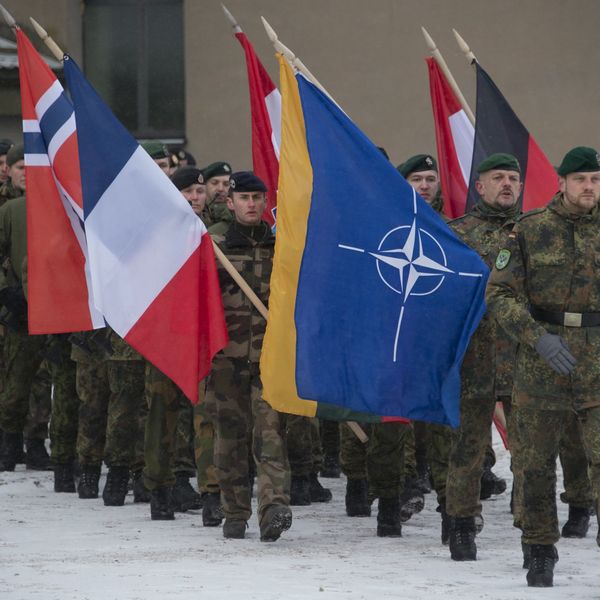The president’s Oval Office address on U.S. support for Ukraine and Israel was long on ideological declarations and short on real justifications for his administration’s policies.
Repeating nostrums from the height of the unipolar moment, Biden insisted that the U.S. must support both ongoing wars because it is the “indispensable nation” and that “American leadership is what holds the world together.” The president also asserted that Ukraine and Israel’s success was “vital for America’s national security,” but his defense of this claim amounted to little more than a revised domino theory that failure in one place would lead to disasters elsewhere.
If Ukrainian and Israeli success were truly “vital” for U.S. national security, it is doubtful that the U.S would remain in a supporting role. The fact that the U.S. has so far avoided direct intervention in both conflicts strongly suggests that even Biden doesn’t really think that vital U.S. interests are at risk in either place. If so, he would be right that vital interests aren’t threatened. It might be preferable if two non-allies prevail in their respective wars, but it cannot accurately be called vital to U.S. security.
Biden is exaggerating what is at stake to demand more support for both wars at the same time when each should be debated on its own merits.
The danger here is that the president has said publicly that vital interests are at stake in both wars when they are not. That creates a potential trap for the U.S. Biden has made it easy for hardliners to throw his own words back in his face if the situation deteriorates in either conflict. Then he would be under pressure to commit the U.S. to fight more unnecessary and potentially very costly wars.
President Biden’s choice to shoehorn both wars into the same address to build support for funding both is unlikely to persuade skeptics. The two conflicts are different enough in significant ways that trying to make them into part of the same global fight is hard to take seriously. The pairing of tyrants and terrorists in Biden’s speech is a Bush-era rhetorical move that reminds us of the errors that can result from lumping together radically different adversaries.
In the Ukraine war, Russia is the one illegally occupying territory that it seized by force. In the conflict between Israel and Hamas, Israel is the illegal occupier, and it has been occupying another people’s land for more than half a century. The long history of dispossession and oppression of the Palestinians under Israeli rule makes it impossible to treat both conflicts as simple stories of democracies under siege, but that is what Biden tried to do to justify rushing even more military assistance to the region’s most powerful state.
While Biden deserves a little credit for acknowledging that Hamas doesn’t represent the Palestinian people, his lockstep support for the Israeli military campaign, including the crippling siege of Gaza, shows that he is not respecting this distinction in practice.
Biden claimed that if adversaries are not stopped “they keep going” and “the threats to America and the world keep rising,” but that seems extremely unlikely in these two cases. Russia lacks the capabilities to wage an offensive war against countries beyond Ukraine, and even in the worst-case scenario where Ukraine is defeated outright the Russian government would have to be suicidal to try to keep going west into NATO territory.
The president’s desire to exaggerate the larger threat from Russia leads him to call into question NATO’s ability to deter attack. In the other conflict, the threats to America seem much more likely to keep rising if the U.S. ties itself closely to Israel as it wages a devastating war in Gaza.
The assumption that the U.S. is the “indispensable nation” and that its leadership “holds the world together” is an article of faith in a discredited creed. It isn’t true, and there are plenty of examples from Vietnam to Iraq to Syria how U.S. “leadership” has stoked division and conflict to the detriment of all. That belief in America’s “indispensability” fueled some of the worst blunders and crimes in recent American history, and it has done a great deal to undermine and harm U.S. and international security in the twenty-five years since Madeleine Albright uttered that phrase.
It is an astonishingly arrogant belief that holds that the security of the rest of the world hinges on constant U.S. interference. When applied to policy, it condemns the United States to fight or otherwise be involved in foreign wars for the rest of its existence. Far from holding the world together, that will have a destabilizing and destructive effect in many regions as the U.S. keeps trying to prove how “indispensable” it is despite its relative decline.
It is worth remembering that Albright’s formulation didn’t just emphasize that the world depends on the U.S., but that it depended on the U.S. because we “stand tall and see further than other countries into the future” and therefore the U.S. would be justified in using force when it saw fit. As Andrew Bacevich has observed, Albright’s claim was nonsense: “The United States does not see further into the future than Ireland, Indonesia, or any other country, regardless of how ancient or freshly minted it may be.”
The U.S. has no special prescience or greater understanding of the world than other countries, and in many cases it is painfully clear that our leaders have trouble seeing what is right in front of them.
Perhaps the most troubling thing about Biden’s appeal for more support for both wars is his lack of concern about how overstretched the U.S. already is around the world. In an earlier interview with 60 Minutes, the president dismissed concerns that the U.S. was taking on too many extra burdens:
“We're the United States of America for God's sake, the most powerful nation in the history-- not in the world, in the history of the world. The history of the world. We can take care of both of these and still maintain our overall international defense.”
The president’s remarks smack of hubris. Ignoring the limits of U.S. power has typically led our government to overreach in dangerous and self-defeating ways. We have to hope that the president’s overconfidence is not tempting fate.
Biden’s address may have satisfied other believers in America’s “indispensable” role, but it is bound to fall flat with Americans that don’t share that belief and the many more out there that want their government to concern itself more with the domestic problems of this country.
Biden’s sermon-like appeal for more war funding may succeed in Congress in the short term by using pre-existing support for Israel to rally more support for Ukraine, but it could also sour the public on support for both conflicts because of the ever-increasing demands on U.S. resources. The president insists that it is a “smart investment” that will “pay dividends,” but to a growing number of Americans it seems to be nothing more than throwing good money after bad.
- Diplomacy Watch: Can aid package overcome ‘Ukraine fatigue’? ›
- Republicans balk at Biden plan to put Israel, Ukraine - and Taiwan? - aid to one vote ›
- Aid for Israel and Ukraine is not an American jobs program - Responsible Statecraft ›
- The warfare of starvation - Responsible Statecraft ›
- Biden warns of NATO war with Russia if aid disappears - Responsible Statecraft ›
